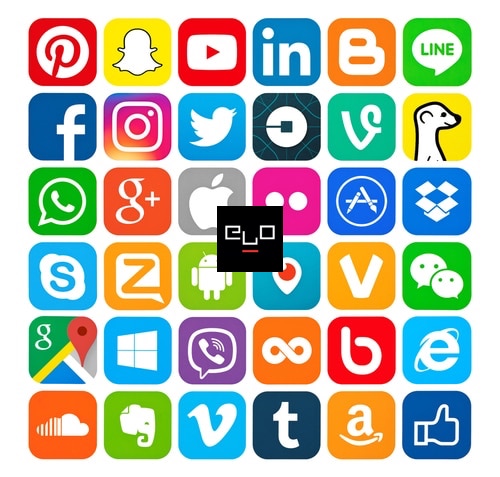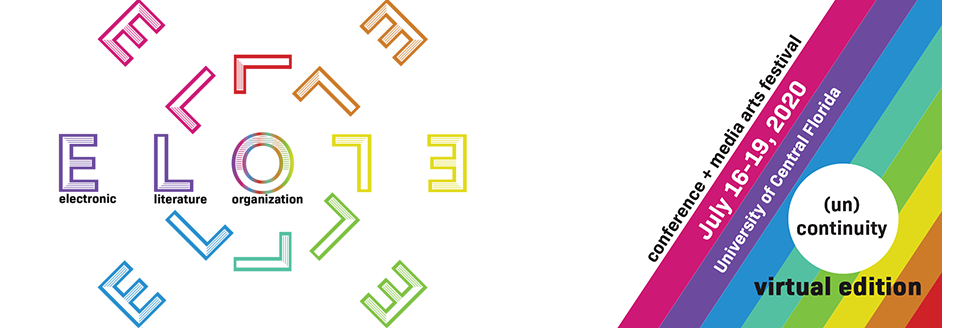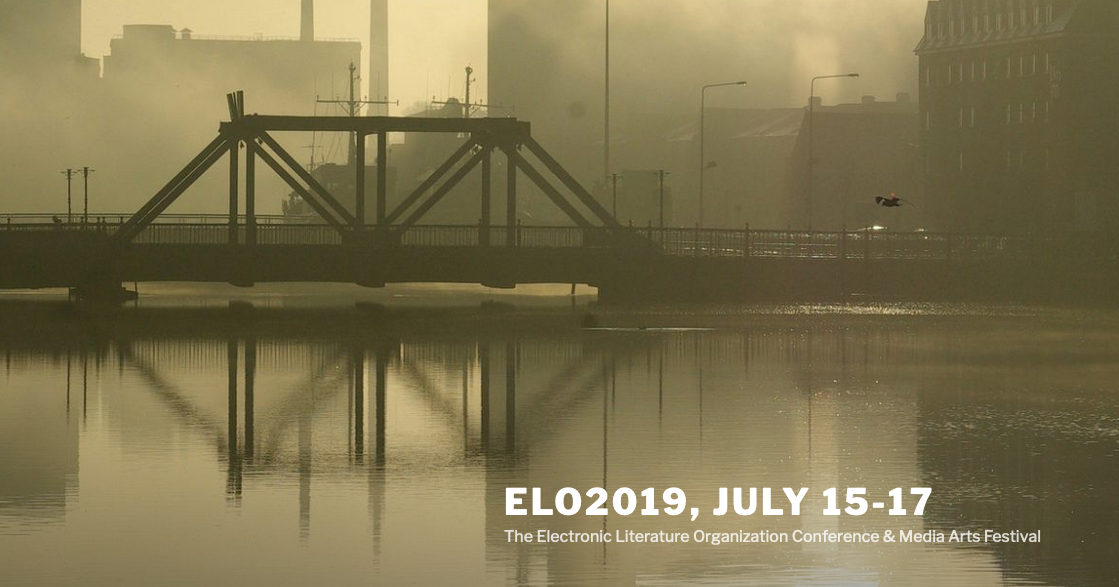Your cart is currently empty!
Leonardo Flores
-
Call for Nominations to the ELO Board of Directors
The Electronic Literature Organization seeks engaged members of the ELO community for three open seats on the ELO Board of Directors (BoD). The BoD is a working board dedicated to… Read more.
-
Call for Proposals: ELO 2022 Conference
The Electronic Literature Organization (ELO) seeks proposals to host the ELO 2022 Conference, Festival, and Media Arts Exhibition (ELO Conference, for short). Given the progress made with vaccinations and addressing… Read more.
-
CFP: Emerging Spaces for E-Lit Creations
Call for Proposals: Emerging Spaces for E-Lit Creations The electronic literature community has developed many online publications (‘zines and similar resources) that feature Web-based technologies and have typically taken the… Read more.
-
ELO 2020 Prize Winners
We are pleased to announce the 2020 ELO Prize winners. The Robert Coover Award for a Work of Electronic Literature 1st Place: The Library of Nonhuman Books by Karen Ann… Read more.
·
-
Call for Proposals for ELO 2021 Conference
The Electronic Literature Organization (ELO) seeks proposals to host the ELO 2021 Conference and Festival. Given the uncertainty surrounding the Covid-19 pandemic the ELO wishes to protect its community by… Read more.
-
ELO 2020 Conference: Live Events
As we prepare to launch this year’s online conference, we would like to invite our community to support the ELO with their 2020 membership dues ($50 regular membership, $25 for… Read more.
-
ELO Conference Survey
The ELO Board of Directors– and our conference organizers– are interested in offering the most rewarding conference experiences to its community. In order to continue improving in this mission, your… Read more.



